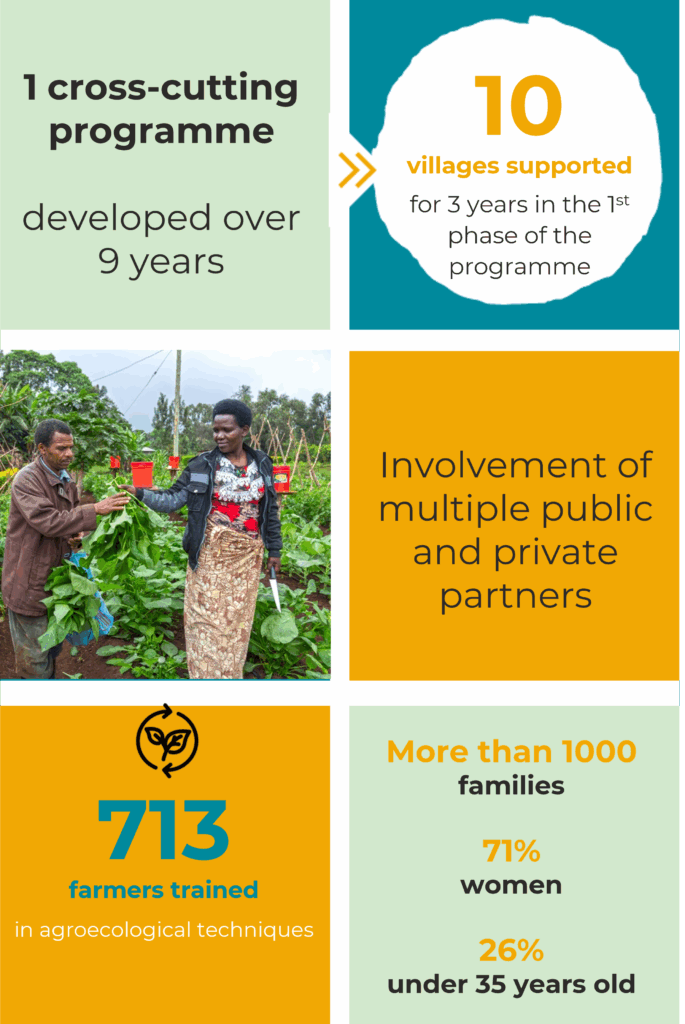Issues
Located in the north of Tanzania, the Arusha region is suffering the direct consequences of climate change in a country whose population has jumped by more than 40% in the last ten years. The degradation of natural resources and soil is putting the inhabitants of this rural area in a worrying situation of food insecurity. Rural households, and particularly women, are at the front line of these difficulties.
The region therefore needs to establish a resilient food system based on sustainable agricultural production techniques that combine sustainable land management, resource conservation and productivity. The aim is to achieve lasting improvements in production methods, food supply and farmers’ incomes, while proposing a model that can be replicated on a national scale.
Actions
Founded in 1998 and based in Montpellier, CARI is an international solidarity NGO. Its main mission is to combat desertification and establish sustainable land management in drylands, while promoting social justice.
Since 2022, in partnership with local organisations Iles de la Paix, MVIWAARUSHA and RECODA, CARI has been operating a vast agroecological transition programme called ‘Kilimo Endelevu Arusha’, meaning ‘Sustainable Agriculture Arusha’ in Swahili.
Designed to run for 9 years, with three 3-year phases, the aim of the project is to provide long-term support to small family farms to help them professionalise their practices by acquiring skills in sustainable agriculture. Farmers receive training and technical support, including post-harvest management and marketing practices. Support is also provided for the creation of storage facilities.
To effectively launch momentum towards achieving food sovereignty, citizens and local authorities are mobilised within a multi-actor consultation process.
Assessment of actions carried out during the first phase of the project:
- Dissemination of soil management practices to halt erosion and improve soil water conservation
- Training in new cultivation and storage techniques for 21 groups of farmers from the 10 intervention villages
- Diversification of agricultural production and livestock activities
- Restoration and management of 220 hectares of agricultural land, pastures, and forest cover
- Installation of rainwater harvesting tanks in 60 farms
- Implementation of participatory guarantee systems to certify marketed local products
- Contribution to the national strategy for agroecology adopted in Tanzania with the involvement of local partners
- Awareness-raising and training of 550 teachers and schoolchildren on healthy eating
In addition to the financial sponsorship from Mirova Foundation, the first phase of the program received public funding from French and Belgian development agencies.
Key figures

Our support
- Multi-year partnership (2022-2025)
- Financial support
- Connection with the Mirova teams based in Arusha